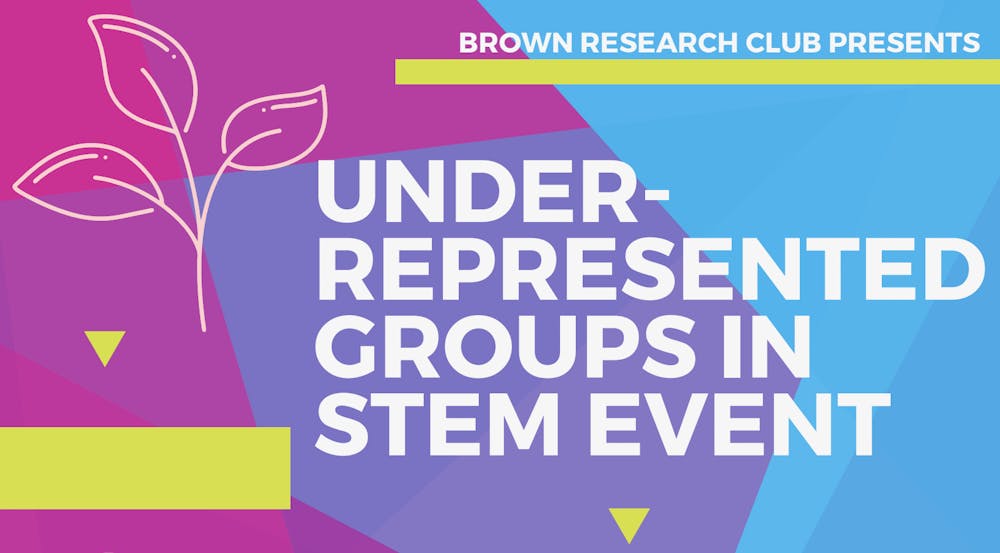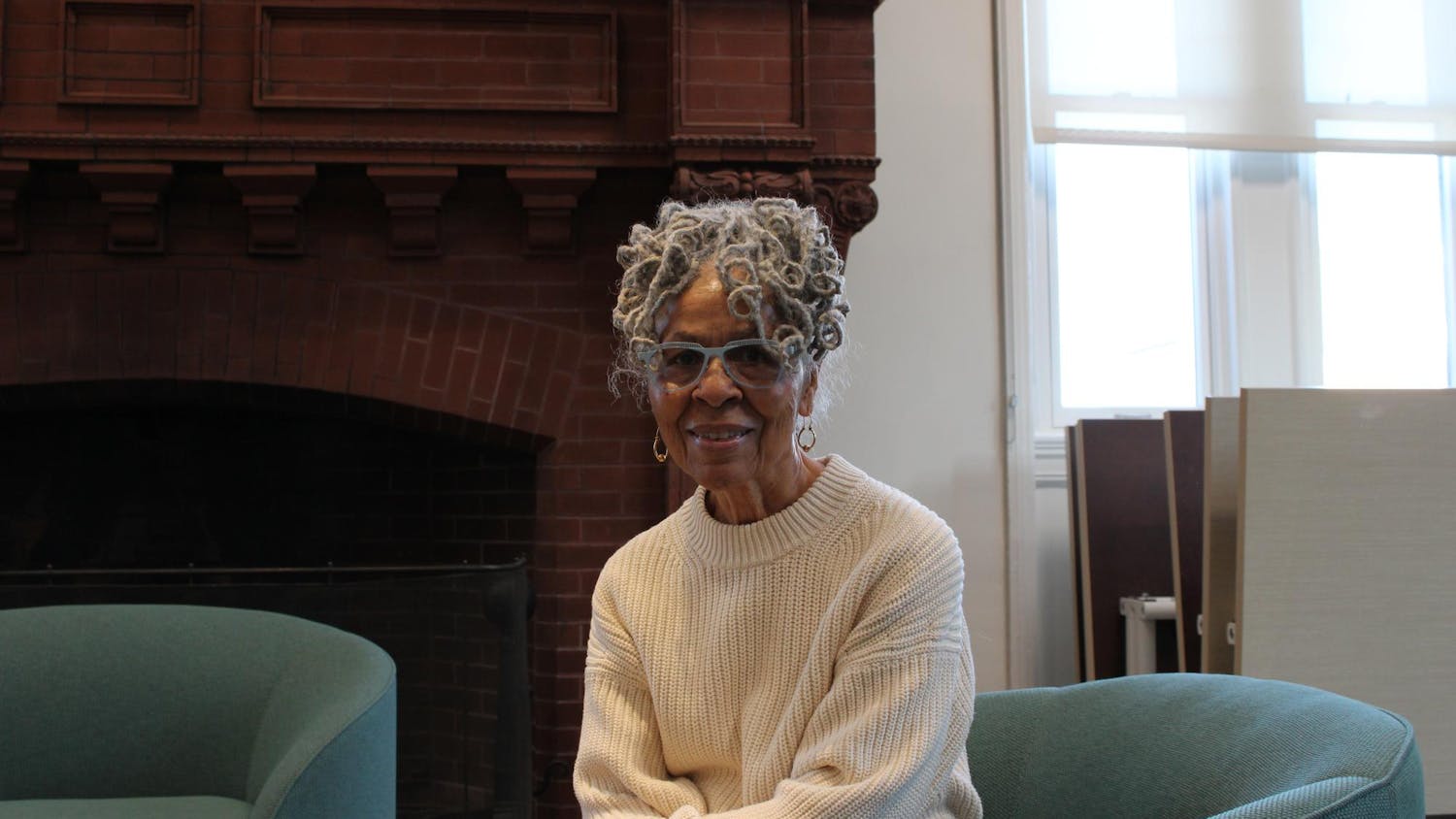The Brown Research Club hosted an event called “Underrepresented in STEM” on Sunday, which featured speakers Oludurotimi Adetunji, the associate dean of the college for undergraduate research and inclusive science, and Cel Welch GS, a PhD candidate doing research in biomedical engineering and founder and CEO of a nonprofit called Queer Engineer International.
The Brown Research Club, founded in 2018, aims to “support students in finding opportunities for research,” said Rahma Ibrahim ’22, former Herald science and research editor and co-president of BRC.
The organization held this event to provide a “space where people could come together and talk about their experiences as being underrepresented in STEM … and connect people to other opportunities they don’t know about,” Ibrahim said.
This event was in collaboration with Queer People and Allies for the Advancement of Medicine, Out in STEM, the Society for Advancement of Chicanos/Hispanics and Native Americans in Science, the Society of Women Engineers, the Society of Hispanic Professional Engineers and the Society of Asian Scientists and Engineers. Following talks by Welch and Adetunji, representatives from each organization shared information about their individual clubs for people interested in getting involved.
The event coordinators hoped that audience members would take away that “there is a support network available for underrepresented populations in STEM and opportunities that (underrepresented students) could reach out to,” said Alyssa Steinbaum ’23, a member of the BRC Events Committee involved in planning the event.
Changes in College-Funded Opportunities
Adetunji, who was the first speaker of the event, gave his talk on efforts to ensure equity and access in undergraduate research.
“As an immigrant and an African American physicist, I know firsthand the challenges that minoritized students face in navigating this type of research enterprise,” Adetunji said. “These challenges include limited social capital and financial support for research, finding a research mentor and access to research opportunities, among others.”
He went on to explain that many of these challenges are “embedded in the structures and policies that are placed in organizations, such as higher education institutions,” noting the importance of these institutions to “conduct equity audits and address equity gaps with data driven decisions.”
“There is no such thing as race-neutral policies. There are policies that promote racist outcomes and policies that promote anti-racist outcomes,” Adetunji said, quoting the author, professor and anti-racist activist Ibram X. Kendi.
To address inequality issues in programs and staffing, Adetunji had previously conducted intersectionality analyses of programs and staffing and noticed that “programs that did not factor in student cost had deep inequalities,” he said. In the spring of 2020, he began to collaborate with colleagues who oversee summer funding opportunities to address these issues.
He set out to address student-voiced concerns about the difficulty of navigating summer programs, “each with their own deadlines, funding amounts and application process,” as well as the lack of clarity behind the process of many research opportunities, Adetunji said.
“SPRINTs now serve as the umbrella application for college-funded opportunities, including BrownConnects, LINKs, UTRAs and other awards,” Adetunji said. This allows “us to create and make visible opportunities for Brown students, which focus on high and highest financial need, historically underrepresented groups and international students, to (allow them to) engage in high in-person opportunities and to address equity gaps in our programs,” he said.
Incorporating the UTRA application into the SPRINT process has simplified the process for both students and faculties, making it easier for students to find opportunities and faculty to post positions, Adetunji added.
“The UTRA program now prioritizes funding for students demonstrating financial need,” Adetunji said. “This is a major shift in our process. We have also enacted a holistic review process that takes into account faculty feedback and equity-minded factors in our decision making.”
In the past, there was a “single funding amount for all students regardless of demonstrated financial need,” Adetunji said. In the new progressive funding structure, “we have institutionalized automatic GAP awards for students who demonstrate financial need.”
“As a result of these changes, our applicant pool for faculty collaboration of UTRAs was the most diverse in the program's history,” he said. “We continue to increase access for students to engage in research, thereby ensuring equity, inclusion and access in undergraduate research at Brown.”
Why We Need Diversity in STEM
Welch began the second talk of the event by introducing the concept of the “leaky pipeline,” a phenomenon in which representation of historically underrepresented groups decreases at every level of academia.
Welch proposed that this is not a result of individual decisions to leave the field, but rather the result of various factors like discrimination, marginalization, lack of role models, lack of resources and others’ biases forcing people out.
This is a systemic problem in STEM where people are “exposed to lots of different things … that would make them want to not be in this field: … things like racism, things like sexism, things like homophobia and transphobia,” Welch said.
Underrepresented minorities face heavy discrimination in certain STEM fields, Welch said, citing statistics from Pride in STEM that show that “less than 60% of LGBT people are out in STEM.”
Queer Engineer International is a nonprofit organization Welch founded to create “more resources for LGBTQ+ engineers” so that “all of us have a way of actually meeting each other and kind of forming a network,” Welch said.
One of the projects Queer Engineering International has done is a visibility campaign in partnership with 500 Queer Scientists to show a “diverse array of LGBTQIA+ engineers … from various different backgrounds, different countries, working in different areas to make sure that people felt represented,” Welch said.
The visibility campaign was designed to “tap into our international and diverse audience of different engineering professionals” so that anyone who is “wondering if they can actually be an engineer, while LGBTQ or whatever else, can see these profiles” and find and connect with somebody who looks like them, Welch said.
In the last part of their talk, Welch gave advice on how to succeed as a minority, marginalized or disadvantaged student. “First, it can be really helpful for your career to actually visualize and plan it out … whether you want to be a medical doctor or a research scientist, work for the government, whatever it is that you want to do,” Welch said.
“It's also very helpful to find a network of people who can relate to and support you,” Welch said. They also noted the importance of seeking out role models and mentors at every career stage.
Welch also emphasized the importance of taking time for oneself. “You're not a machine that's created to do STEM, so it's important to set aside some time to not only discuss what you're going through if you're going through a tough time … but also practice self care and prioritiz(e) health as well,” Welch added.





